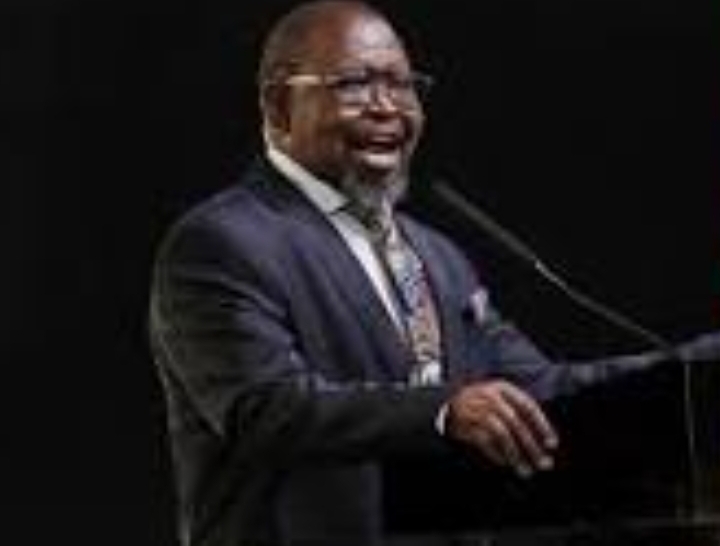South Africa’s unity government faces uncertainty as the DA and opposition vote against the 2025 budget over a VAT increase, threatening the coalition’s stability.
Key Coalition Partner Votes Against South Africa's Budget, Endangering Unity Government


The future of South Africa's government of national unity has been cast into uncertainty following a pivotal vote in which a key partner in the coalition voted against the 2025 budget. Lawmakers approved the controversial fiscal framework on Wednesday by a narrow margin of 194 to 182, with the primary point of contention being an increase in value-added tax (VAT).
The Democratic Alliance (DA), along with opposition parties uMkhonto we Sizwe and the Economic Freedom Fighters, rejected the fiscal framework. The contentious budget proposes a VAT hike, which will increase the country's VAT rate by half a percentage point starting next month. Another half-point increase is planned for the following year, ultimately raising the VAT rate to 16 percent by the 2026-2027 fiscal year. VAT is levied on goods and services, including essentials like food and electricity, and opposition parties have condemned the budget as “anti-poor,” arguing that it will drive up the cost of living.
Finance Minister Enoch Godongwana defended the tax increase, stating, "Let’s update our facts. What are the facts? Comma five will generate R13.5 billion, right? What does our data tell us about VAT? Our data says VAT is paid by the three upper income categories.” He also pointed to the latest budget data, which shows that over 20 million South Africans rely on welfare grants and the country’s unemployment rate hovers just above 32 percent. Amid sluggish economic growth and persistent high unemployment, the proposed 0.5 percent VAT increase is expected to generate around $800 million in revenue annually. This additional revenue could be directed toward funding government programs in health, education, and social services.
Despite the government's defense, the DA has criticized the Treasury for not doing enough to stimulate the stagnant economy and called for a review of government spending. Following the vote, the DA announced its intention to challenge the budget’s outcome in court. Minister Godongwana expressed doubts about the DA’s continued participation in the coalition, stating, “I don’t think you can vote against the budget and tomorrow, you want to go and be part of its implementation? It can’t be. It can’t be. We’ve got to draw a line on that point.”
The DA had joined the unity government after the African National Congress (ANC) lost its parliamentary majority last year. The DA’s vote against the budget has intensified tensions within the already fragile power-sharing arrangement, placing the less-than-one-year-old coalition on a collision course that could ultimately lead to its dissolution. The power dynamics between the ANC and the DA have sparked numerous disputes, particularly over ideological differences related to foreign policy, land reform, and reforms in education and health.
In February, the budget speech was delayed for the first time in the country's democratic history, as parties clashed over the proposed VAT increase. The proposed VAT hikes also sparked outrage from civil society and other political factions. Despite these challenges, a small party outside the unity government, ActionSA, unexpectedly sided with the ANC, tipping the balance in favor of the government and ensuring the budget’s passage.

 বাংলা
বাংলা  Spanish
Spanish  Arabic
Arabic  French
French  Chinese
Chinese 
